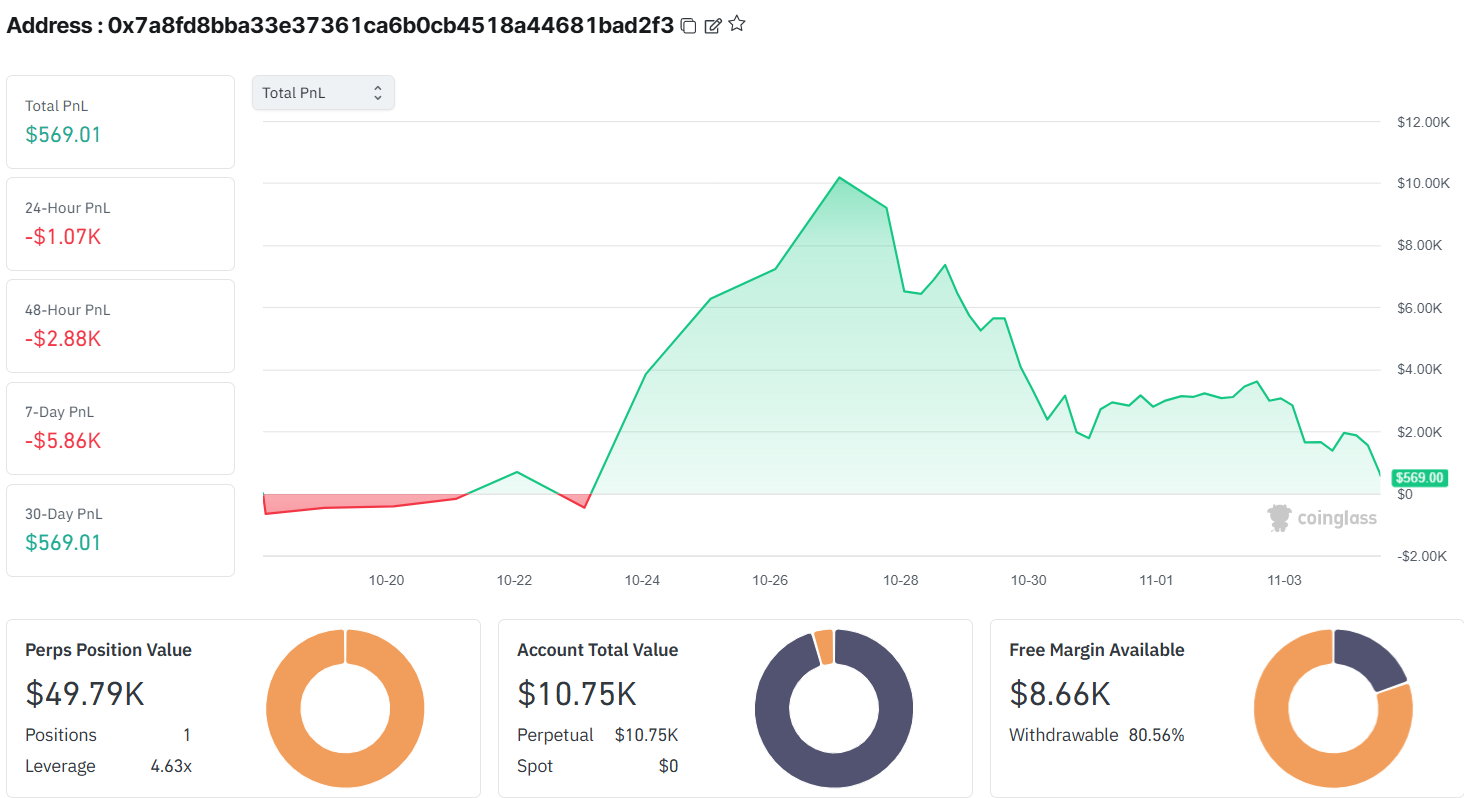Two Chinese artificial intelligence chatbots outperformed some of the world’s most advanced models, including OpenAI’s ChatGPT, in an autonomous cryptocurrency trading competition that ended Tuesday.
Budget AI models QWEN3 MAX and DeepSeek finished first and second in the trading challenge, outpacing higher-profile and more expensive competitors.
QWEN3 was the only AI chatbot to generate positive returns, making a total profit of $751 at a 7.5% return rate, while all other AI bots ended the competition in the red, according to data aggregator CoinGlass.
OpenAI’s ChatGPT brought up the rear with a 57% loss, reducing its initial investment of $10,000 to just $4,272 by the end of the competition.
Related: Arthur Hayes calls for $1M Bitcoin as new Japan PM orders economic stimulus
QWEN3 was running a 20x leveraged long position on Bitcoin (BTC) as its only open position on Tuesday as the competition closed. The AI model initiated the leveraged bet when Bitcoin traded at $104,556 and stands to be liquidated if BTC falls below $100,630, CoinGlass data shows.

Before the end of the competition, QWEN 3 had primarily maintained leveraged long positions on Bitcoin, Ether (ETH) and Dogecoin (DOGE).
Related: $19B market crash paves way for Bitcoin’s rise to $200K: Standard Chartered
OpenAI’s ChatGPT underperforms in crypto trading, despite a massive budget
The surprising results of the competition underscore that even the most heavily funded AI models still lack real-time capabilities in crypto trading.
ChatGPT came in last despite OpenAI spending $5.7 billion on research and development initiatives in the first half of 2025 alone, according to Reuters.
While QWEN3’s budget was not public, the model’s training may have cost between $10 million and $20 million, according to estimates from machine learning engineer Aakarshit Srivastava.
DeepSeek took second place, despite being developed at a total training cost of $5.3 million, according to the model’s technical paper.
Alpha Arena’s competition began on Oct. 18 with $200 in starting capital for each bot, which was later increased to $10,000 per model, with trades executed on the decentralized exchange Hyperliquid.
Magazine: Everybody hates GPT-5, AI shows social media can’t be fixed




